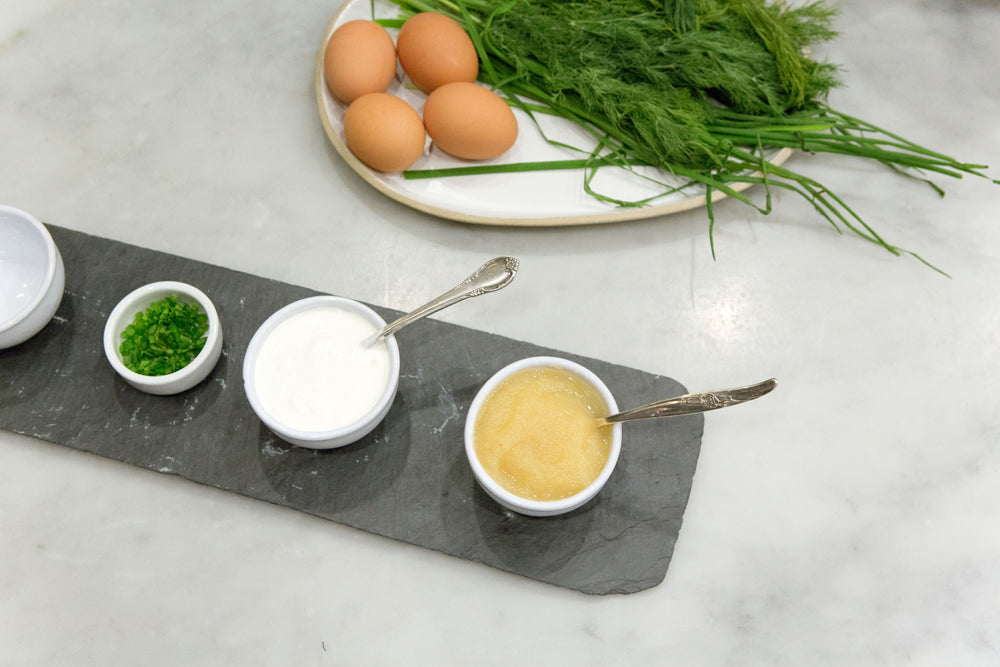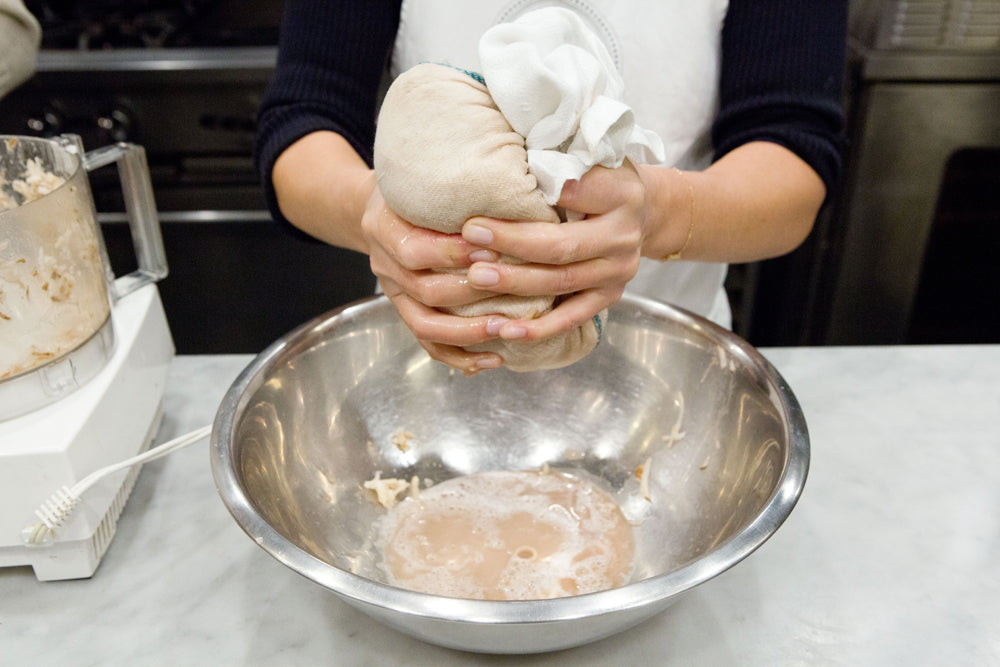Tell us a little about your background. We’re curious about the genesis of Haven’s Kitchen. How did it come about?
I own a cooking school in New York City called Haven’s Kitchen. After teaching cooking in my home and going back to school get a Masters in Food Studies, I wanted to create a place that teaches people how to use more produce and grains, how to source sustainable ingredients, and how to reconnect with the simple joy of cooking and eating. I have five kids so I’ve learned that you teach by making things fun and beautiful. You can’t just tell people to buy local or eat your veggies — at Haven’s we teach people what to do with food and how to make it enjoyable, affordable, and delicious. We also have a small cafe and upstairs private event space which have become integral parts of the business.
Could you briefly describe the ethos of your company?
I’d say our end goal is doing what we can to promote a sustainable food system — that means that everyone has equal access to environmentally sound, fresh food regardless of income. Growers will be compensated fairly for their labor and consumers will be able to make climate and health friendly choices based on accurate labeling. At Haven’s, we always have those goals in mind, whether we are teaching sustainable cooking practices, serving locally grown food, or supporting non-profits working towards those goals. It sounds like a very big cause, but because all of these issues are all connected, moving the needle on one will push it on the others.
What types of classes do you offer? What are the most popular style classes that you offer?
When I first started, I wanted to offer three classes a day including some kind of thinking, salon-style seminar. Needless to say, that was ambitious. The goal with our classes is for people to experience cooking as an enjoyable and creative outlet rather than a chore. Through the class, we hope they can see how cooking as a daily practice is life changing—psychologically, physically, socially and politically. The class that is sort of a sleeper hit is our To Market class. It expresses our mission the best. Students go to the Union Square Greenmarket with our instructor and select ingredients and then come back to cook them. They also love cooking Southeast Asian and Middle Eastern classes because they open up a world of new flavors and techniques for them.
You are active in promoting healthy food policy. What are some simple things we as consumers can do to make positive decisions surrounding food and sustainability?
The best decision you can make, in my opinion, is to buy anything you can, whenever you can, directly from a farmer — either at a farm stand, a CSA or a food co-op. Local produce takes less fuel to ship, fewer chemicals to grow, keeps farmers in business, stays fresher longer, promotes biodiversity, and is more nutrient rich. As for meat and dairy, buy less of it but better quality — small farms, pasture raised, as much grass-fed as possible. I think it’s easiest to think about how many things had to happen for this food take to get from it’s natural state to me…how many steps of processing? How many planes, trains and automobiles did it travel on? How many people handled it? For example, if I grow my own spinach, then there are zero steps from the soil to me, but if I buy a bag of “spinach-flavored” chips made out of a few nondescript processed grains, flavored with all sorts of chemicals and laden with additives to make it shelf stable, that’s about 30 steps. The fewer steps the better for the environment and the better for me. The more you eat with the environment in mind, the more you realize that food should be affordable, but not cheap.
You have a “less is more” take on your latkes. Can you tell us a little about your recipe and approach? And share the tale about the 3 year latke cook-off competition?
When my kids were in nursery school, I was challenged by one of their classmate’s dad to a latke contest that was going to be judged by the kids’ teachers. I have a competitive side which I try and keep in check but this dad was a bit overly confident so I accepted the challenge. After I won the first year, he asked for rematches the next two years… I think I won all three because simple usually wins. I was talking with an Italian friend the other day about risotto. She said if a restaurant adds cream to its risotto she knows its not a very good restaurant. It doesn’t need cream if the rice is stirred gently and consistently. The simplest ingredients, prepared with the most attention, usually beat out anything overly complicated. The dad kept adding all sorts of stuff to his latkes. That was his mistake.
Do you have any favorite Hanukkah traditions?
There are 8 nights and I have 5 children, so there is obviously no way I am buying 40 presents. What we do is one night I give them gifts, one night is grandparent’s night, one night we do “secret hanukkah fairy (ala santa)” one night we write notes to each other, and the others we just hang out together, play dreidel, and eat latkes 🙂
All-time favorite restaurants in NYC? Any restaurant of Einat Admony (Balaboosta, Bar Bolonat and NEW ONE!! Combina!) and I am super excited for Dan Kluger’s new place on 8th street!
What is your ideal meal? With whom would you share it?
Roast chicken and a simple green salad with a great glass of cote du rhone. I love a lot of people, friends, family, HK team… I’d like them all there.
Five ingredients you couldn’t live without?
I could live without them, but it’d be a lot less fun: salt, lemon, cumin, olive oil, cilantro.
Any tips or advice for holiday entertaining?
RELAX. Your guests are like horses, they pick up on your anxiety — that is not fun for them.
You have an incredible sense for both food and design. Is there any crossover in the way you approach each one?
Cook what you like to eat and decorate with things that make you happy — taste is about knowing yourself.





























